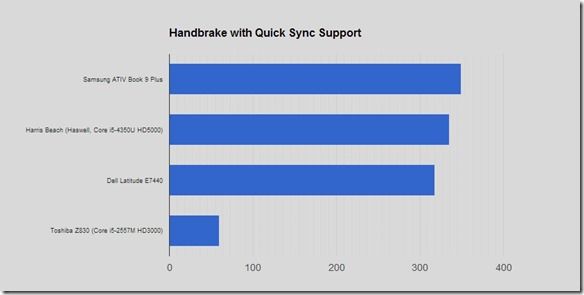Disk performance
Using Crystal DiskMarkX64 we see the following under battery power. It’s asymmetrical and the relatively low 4K read speed could affect disk-disk copy times. We would have liked to have seen higher sequential write speeds but in general the performance will be enough to keep most people very happy.
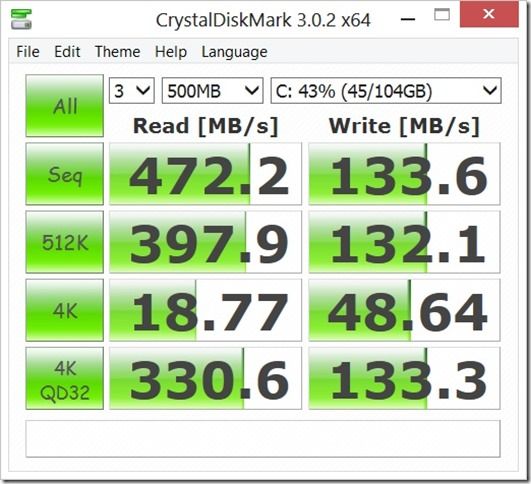
Cinebench
Cinebench 11.5 under battery power shows us that Turbo Boost is working and the results are as good as other Ultrabooks with the same CPU. Under mains power / performance mode there’s no real improvement. Clockrate held steady at 2.3Ghz during the CPU test.
Cinebench R11.5 CPU test results (review device at top of list.)
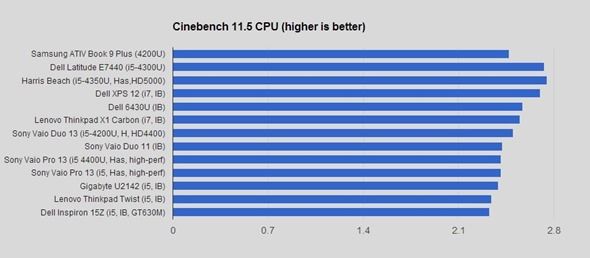
Samsung ATIV Book 9 Plus Cinebench CPU Battery Power, Balanced Performance: 2.47
R11.5 OpenGL test
There are no issues with the OPenGL test under battery power. The Samsung ATIV Book 9 keeps up with Ultrabooks of a similar specification. E.g. Sony Vaio Pro 13.
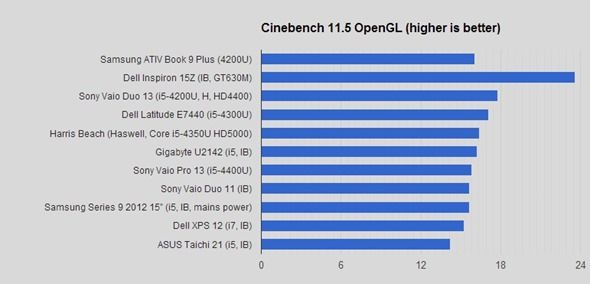
Samsung ATIV Book 9 Plus Cinebench OpenGL: Battery power, Balanced Performance: 16.04
Peacekeeper
Peacekeeper is a good test of the way many of us use our browsers – interactively, with web-apps and graphics. Tested here with Chrome. The result is slightly lower than the Sony Vaio Pro 13, a competitor.
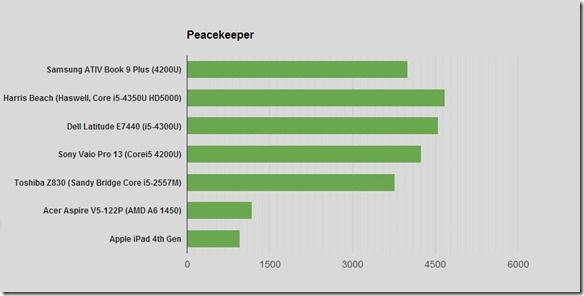
Samsung ATIV Book 9 Peacekeeper score: 3999
PCMark 7
Good PCMark 7 scores indicate a quality office experience.
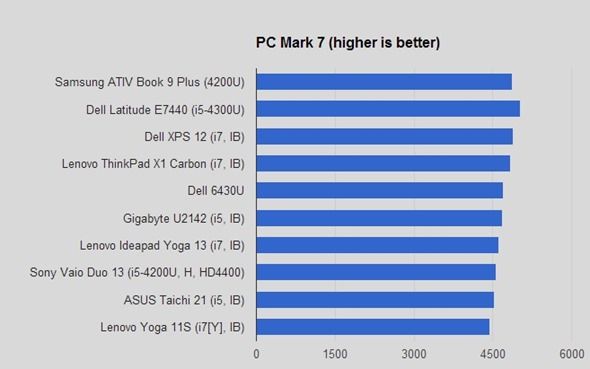
Samsung ATIV Book 9 PCMark7 score: 4870
Gaming
Given the large battery on the Samsung ATIV Book 9 Plus it’s capable of handling some 3D gaming while retaining enough charge for some other activities. Performance under 3DMark isn’t fantastic, however. Here you see it up against a Core i5-4300 (VPro, higher clock and Turbo.)
3DMark 11 P886
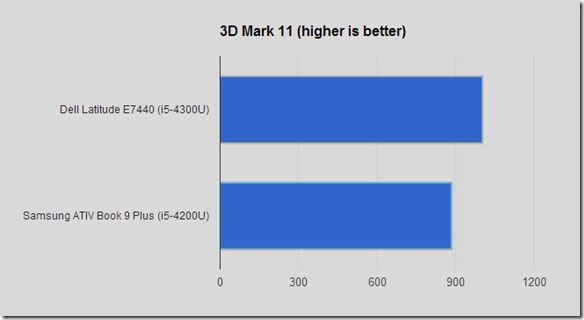
Note: We’ve recently dropped the 3DMark06 test from our review process. From here onwards we’ll use the 3DMark11 test.
Video Encoding (Handbrake with Quick Sync)
Handbrake with Intel Quick Sync support works well. On a 1080p to 720p down-conversion. (Source: H.264, 1080p, 50FPS Output:H.264, 720p, 50FPS) it scored 349 FPS which is currently the best we’ve got in our database.
